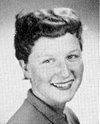Saturday, November 19, 2005
Mike Pennachi Sr - on drugs

Drugs – Prescription that is
I want to write about drugs and I don’t mean coke,
These are the other ones that can make you go broke.
High technology and chemical advances,
Have greatly improved old folks chances.
We can move around, dance and go hiking,
But the price we pay is not to my liking.
High blood pressure, they call it hypertension,
Better be careful or you won’t live to see your pension.
Then there is sugar in all that we chew,
Not anymore if you have Diabetes 2.
And the prostate that’s big as a melon,
So that every 5 minutes your bladder is swell’in.
If arthritis doesn’t get you then a backache will,
The answer to all these are to take a pill.
There are lots of them out there, have you taken a look,
You can find them all listed in the formulary book.
Everything is there and they look really nice,
It only gets bad when you go to pay the price.
The government has in all its wisdom,
Come up with a plan for a prescription system.
We can get coverage that pays part of the cost,
But for the drug companies no profits are lost.
So forget about paying most of your bills,
Just save it all to buy your pills.
Wednesday, November 16, 2005
Mike Pennachi Sr.

They say that no matter how old we are, in our minds we are still 18 years old
As the 50-year reunion moves ever closer, my thoughts return to those early years. All the things I did that I wish I hadn’t done and all the things I wish I had.
This prompted me to write the words to a song. Perhaps someone out there could add the music.
THE CARS I WISH I HAD OWNED
THINGS HAVE CHANGED, THEY ALWAYS DO,
BUT BELIEVE IT OR NOT, I WAS YOUNG TOO.
IN THOSE DAYS THERE WAS A RULE,
YOU HAD TO HAVE A CAR TO BE REALLY COOL.
NOT ANY OLD CAR LIKE A FAMILY HAND-DOWN,
IT HAD TO BE SPECIAL FOR CRUISING ROUND TOWN.
LIKE A 40 FORD WITH A CLASSIC SOUND
A 49’ FORD LOWERED TO THE GROUND
A 54‘VETTE, THE FIRST OF THE LINE
OR A 56’ TBIRD, THEY LOOKED REALLY FINE.
I’VE OWNED CARS SINCE THE DAY I COULD DRIVE,
FROM A 47’ STUDIE WITH OVERDRIVE.
TO A 51’ CHEV THAT NEVER WINS,
AND A 57’ DODGE WITH GREAT BIG FINS.
THEY WEREN’T COOL OR EVEN TWO-TONED,
NOW THESE ARE THE CARS I WISH I HAD OWNED.
A 40’ FORD WITH A CLASSIC SOUND
A 49’ FORD LOWERED TO THE GROUND
A 54’ VETTE, THE FIRST OF THE LINE
OR A 56 TBIRD, THEY LOOKED REALLY FINE.
NOW THAT I’M OLD AND OUT OF MY PRIME,
I GUESS I COULD GET THEM ANY OLD TIME.
BUT THEY WOULDN’T BE COOL AND NIETHER WOULD I,
SO I’LL JUST CARRY THESE MEMORIES TILL THE DAY THAT I DIE.
OF A 40’ FORD WITH A CLASSIC SOUND
A 49’ FORD LOWERED TO THE GROUND
A 54’ VETTE, THE FIRST OF THE LINE
OR A 56 TBIRD, THEY LOOKED REALLY FINE.
THINK OF ME AFTER I GO,
WHEN YOU SEE THESE CARS IN AN ANTIQUE SHOW,
THEY’LL BE RESTORED AND PERFECT TO VIEW,
BUT THEY WON’T BE LIKE WHEN THEY WERE NEW.
AND PICTURE ME AT 17 AND BEHIND THE WHEEL
AND YOU CAN IMAGINE JUST HOW COOL I FEEL.
DRIVING A 40’ FORD WITH A CLASSIC SOUND
A 49’ FORD LOWERED TO THE GROUND
A 54’ VETTE, THE FIRST OF THE LINE
OR A 56’ TBIRD, THEY LOOKED REALLY FINE.
Sunday, November 13, 2005
Drug Plan Decison II - Sudoku

Complicated? Sure, if you are speaking to a room of 100 people, trying to cover all the possible variables. But you only have one situation. Yours. So it is time to apply the process of elimination. That is what Sudoku is about. You have this 9 by 9 grid to fill in with the numbers 1 through 9, and it looks impossible. But you solve it one cell at a time, by figuring out what numbers CAN'T go there. If you aren't into Sudoku yet, you need to try it. It delays Alzheimer’s as effectively as exercise, and is a lot less work.
So you start your decision process by figuring out what you can't do. If you are covered by an employer drug plan, the sponser is required to notify you by November 15 how it compares with the Medicare minimum. If it is better, you are not going to switch. Also, if electing Medicare Part D causes you to lose all of your other employer coverage, you are going to want to stay put, at least until your employer tells you you can do better with Medicare. If you don't have much in the way of drug expenses, say, less than $1000 a year, it is hoped you will be scared into signing up by the future "penalty" to support everybody else. Not too hard there either. But if you have no current drug coverage other than those discount cards that are going away (they actually worked, to my surprise), and some hefty costs, it is time to pick a carrier.
If there are 50 plus carriers listed for your area, all with some differences, how do you figure that out? The government web site Drug Plan Finder actually purports to work now. You put in the drugs you take, and it comes back with an annual cost to you. When I first entered my drugs, the best on my list was just over $1000, and the worst about $4,000. Since then the difference has shrunk, as insurers adjust their plans, as they can do weekly. The difference is still substantial, but it is still easy to see who is cheaper, and you would need a good reason to chose a plan with a higher total cost. Be sure to click on "Select Below" in the Plan Information column, then "View Cost Details". That will show you the annual cost for the mail order pharmacy. The cheapest one there may not be the cheapest showing in the first schedule, which is the retail pharmacy cost. In my case, all the pharmacies I would normally use accepted the cheapest plan, but I plan to use mail order, which is clearly the better deal, and you get 90 days supply at a time, instead of just 30. I guess I won't have to stress about this much. You can limit the list of pharmacies before you get your list of plans, but I wouldn't do that until I knew there was a problem.
A word about the web site, http://www.medicare.gov/. Since it is like the lecture that tries to be all things to all people, you have to labor through, and some choices are not obvious. Start by clicking on Compare Medicare Drug Plans. That is what you are there for. Even after you have entered the drugs you take and have your list of plans, you have to be careful. For most people, the estimated annual cost will not appear to equal the total of "What You'll Pay" in three colums, the annual deductible, the monthly drug premium, and the monthly cost share. Now you would expect that if you add the premium and the cost share, multiple times 12, and add the deductible, you should get the stated estimated annual cost. Anyone taking a couple of the more expensive drugs will push into the into the "donut hole", where there is no coverage, before the year is out. I will have some more to say about that in "horseshoes and hand grenades".
Chuck Cooper
The Drug Plan Decision - Newspapers

There are a lot of variables to the new Medicare drug plan, but the decision process should be fairly straightforward, and certainly not stressful or worrisome. This will be three posts, each with a simple step in the process. First, this is about how much to credit what you read in the newspapers. Next will be on the Sudoku process. Last will be on horseshoes and hand grenades. If any emails show up indicating anybody is reading this stuff, we can go into the actual details of the plan.
Here is the opening quote in today's NYT article. "I have a Ph.D., and i'ts too complicated to suit me," said William Q. Beard, 73, a retired chemist.... " Mr. Beard was interviewed ... where he and 100 other members of an adult Sunday school class recently received a two hour explanation of the drug benefit from a state insurance counselor.
Let's look at the reporting process. The editor decides it's time for another front page article on how complicated the drug plan is, and out go the reporters to get quotable quotes. You can't just go down the street asking people that look old. You will get stuff like "off the porch, sonny, or Fang here gets out", or "huh?". Worse, you get the nice old lady who insists you come in for cookies, and shoot the afternoon. No, you have to go where there is a big meeting of people who are over 65 and already think they need help figuring it out.
Now put yourself in the place of one of those seniors, we will say Bob. A cute reporter who looks like she is about 15 walks up and asks you if the session was hard to understand. Your own grandkids don't come around much, and you wouldn't mind seeing your name in the paper, so you chat her up. If you say "nah, piece of cake" or call her "Toots" she moves on to the next person. So you say "glad you asked, Alison, I am a retired nuclear physicist with my pharmocology license so I can work in my brother's drug store on weekends, and I just cannot grasp any of this. That's B-O-B, Alison. I don't know why the government made this so impossible." Now your friends will stop you on the street with "Hey Bob, was that you in the New York Times?".
OK, we are past that mental hurdle. The next step is Sudoku.
Chuck Cooper
Sunday, November 06, 2005
Nancy Carson - What We Leave Behind
 Where is my black Chinese teapot—the heavy one with the rough fish scales covering the surface and the wide handle that makes it easy to pour? This teapot conveys its own gravity; if I lift it to fill a small cup I feel its presence. Tea from this pot is not to be swallowed lightly. Surely I would not have misplaced a pot of such importance.
Where is my black Chinese teapot—the heavy one with the rough fish scales covering the surface and the wide handle that makes it easy to pour? This teapot conveys its own gravity; if I lift it to fill a small cup I feel its presence. Tea from this pot is not to be swallowed lightly. Surely I would not have misplaced a pot of such importance.But I might have given it away. I give away most things. When my daughter was five and we were cleaning out in the spring, I let her give away her old favorite doll. “Some little girl who doesn’t have a doll will love it,” I told her. An hour later she came to me heart-broken and sobbing. “I gave her away, with no clothes on.” I hadn’t stopped her. I don’t stop myself from divesting.
Why is it that I give everything away so easily, and then worry that I am not connected? Where does this come from? Connection is central to life, but I am willing to dispose of possessions, memories, and sometimes people. My past evaporates at my direction. I live lightly on the land, proud of my transient nature. But today I am searching for that pot. Perhaps it is not wise to reinvent myself constantly, snakelike. Perhaps a little holding on would be a better course.
Some part of my need to divest must come from my place in my family. My mother is a saver. The basement of her house still holds boxes never unpacked from the last move, now some forty years ago. Mother worries what will happen to all the things in the house, like shoes from the 50s and nylon windbreakers and boxes of commemorative plates and enough gift-wrap for a decade. But each time I offer to unpack those boxes or clean out those closets, she concludes that it would be best to leave things as they are. To her they are valuable. She says, “We can’t just give those clothes away, they are worth something.” To her they are in investment; to me they are a liability. I think Mother believes that I will go through the house with a vengeance when she is no longer there to protect it. I think she imagines me stuffing her belongings into garbage bags and putting the dumpster right tin the driveway. Lately I’ve taken to trying to reassure her by saying, “You’d better keep those things, because we will want them.” But maybe she is right about me.
My daughter is also a saver. When my mother’s sister died, my mother and my daughter sat lovingly together going through the possessions, admiring and dividing the dozens of hats and purses and shoes. Mother is wearing those clothes, though she is 5.3” and her sister was 5’10.” She just used up the last inherited lipstick and it’s been four years. My daughter, an artist, uses the pieces she chose as props in photographs or wears them in downtown New York. I meet her at City Bakery at eight in the morning and she is carrying her great-aunt’s boxy red vinyl purse with the gold closing, circa 1953. She looks good. Although I am the visitor, I am wearing New York black, everything foldable, packable, shippable and disposable. Lately I’ve been buying garments made from tree bark—the better to be discarded.
My daughter’s apartment walls are covered by photographs and fabric and drawings. Every surface inch is decorated. To go there is to visit a foreign country, or several, as it changes often. She’s like her grandmother. They enjoy filling space. I enjoy spending time in monasteries, and one of the main reasons is the emptiness. I love the rooms. When I step into a small cell with a narrow bed, a desk, a sink and one window, I feel at home. Sufficient. Complete. I have everything I need, and for a few days it is all mine. I put a flower or some leaves on the table, or prop up a picture, or tape a poem over the bed. I’ve never had much desire for furniture, so my home looks like an art gallery. This spring a visitor, looking around the first floor, said, “Are you moving in or out?”
But living in monastic space is one thing, and living the monastic, unattached life is another. Non-attachment is a tranquil way of life, but it is not without cost. Which is why, I think, I am searching for this teapot. I don’t know what it symbolizes, but letting go of so much may be a strategy that needs revisiting.
Perhaps the teapot is on my mind because teapots are ceremonial. They are crafted for deliberate use, sometimes with rules in rituals, sometimes with others in celebration or welcome or consolation. I can make a cup of tea without a pot; choosing to use the pot serves another purpose. Divesting myself of possessions and leaving people is an efficient mechanism for moving on, but it skips a step. The step is ritual. When we let go of something important, we need to grieve. We need to be deliberate. We need to face what we are doing. We need ritual. What am I doing? What am I leaving?
I left my parents home as soon as I got out of college. I remain 3000 miles away, although my parents need my attention now. I left two husbands to move on, because it was so much easier than trying to fix things. I do not miss those husbands anymore than I miss tossed-out cardigan sweaters. I urged people who had worked for me happily for years to move on to new jobs with difficult bosses, the better to enlarge their life experience. I left jobs myself because there was nothing new to learn, and I am easily bored. I don’t leave everything, and possessions are only possessions. I did not leave my dog, and I do not leave my cat. Actually, I do leave my cat occasionally but I always come back, and I am teaching him to be self-sufficient. He’s learned to go to the neighbor’s window if he is hungry or needs to talk.
I have remained connected to my neighbors for over a decade now. I love the neighbors. On my block I am the person who rolls in the garbage cans and picks up the newspapers. At Easter I make construction paper baskets filled with eggs and cookies and leave them on porches early in the morning. I encourage the adolescent girls and keep an eye on the babies and the new mothers. I share with the women my age the never-ending, stomach-churning roller coaster of parenting, which seems to become harder as they children grow up and struggle with life on their own, far away and not wanting our help.
And I do not leave my friends. I am good at friendship. It does not occur to me to buy new bedspreads or shop for end tables, but I always know how my friends are, and what they need, and what I can do for them. Most of my friends are women, varying ages, varying backgrounds. I write to them, send them clippings from the New York Times, and share my book list. Our lives are interwoven, and I do more than my share of the weaving. Women have always formed strong bonds of friendship, and over the past 20 years I find friendship increasingly easy to construct and maintain. We’ve all learned that each of us is strange in a different way, and there’s nothing to be gained from holding back, and stories come tumbling out quickly.
So my life is full of friends, if not things. Good friends. People to do things with, to talk to, a few to confide in, friends who will be my created family when I need chemotherapy or a liver transplant. These are people not thrown away or held casually; they are cherished.
But these friends don’t live with me, and their lives do not depend on mine. I prefer not to be the center of anyone’s universe. So it seems that what I really leave is difficulty, and one kind of difficulty for me is men. Those two husbands, who turned out to be human. I had no will to stay and change, stay and make things better, stay and figure it all out. In particular, I had no will to stay and talk about it. I have mastered re-invention, but not perseverance. I can join in with enthusiasm as long as I can get out with ease.
Is it true that freedom is just another word for nothing left to lose? No baggage, no burdens, no having to check in with someone or adjust your schedule or share the bathroom. Deep down, I don’t share well. I want my spare space the way I want it. You can spend the night, but you have to go home early the next morning. You can travel with me but I’ll drive and I need a few hours to myself each day. I have become like a 20 year old man—commitment is not an option.
Is it because of the vacuum where acquisition normally falls that I cannot stay attached to a man? Are the genes for possessions and commitment intertwined? I spent too many years in love with an unavailable man, and I now realize just how well this has served me. He comes, he goes. I cry, I long, I languish, and then I re-invent myself. We change the conditions slightly each decade; first he was unavailable cause of religion, then because of marriage, and now we’re back to religion. This shadow dance allows me to preserve the possibility of moving West, going to Law School, reading the Great Books and restructuring my body. Anything can happen. I do not misplace this man. Unlike the teapot, I always know where he is. I put him away into my psychic attic until I need him, and somehow he shows up whenever my life becomes too difficult to face or offers some possibility of settling down. I do not let go of this one thing that I do not have.
Well, maybe 60 is when I settle down. All those options I’ve believed were mine are starting to seem less likely in the face of the American youth culture, the realities of the workplace, the real world of family responsibilities and commitments. Besides, the West is getting crowded. If I stayed home for a whole year and stopped discarding I could get the garden into shape, make a quilt, maybe even buy curtains. I could learn the Japanese tea ceremony, which only takes ten years if you practice with the same people every day.
Nancy Carson
9/98 - Italy
Diane McMahon

One thing that life has taught me is that we all change, inside and out. As we age our bodies do traitorous things to us. You know the "things" that happen as you age. Then there is our minds - as we age we learn soooo much. Not all of value but in some way it is all of value for these lessons bring us to where we are today. Full of wisdom, sorrow, happiness, grief and love for each day we wake up